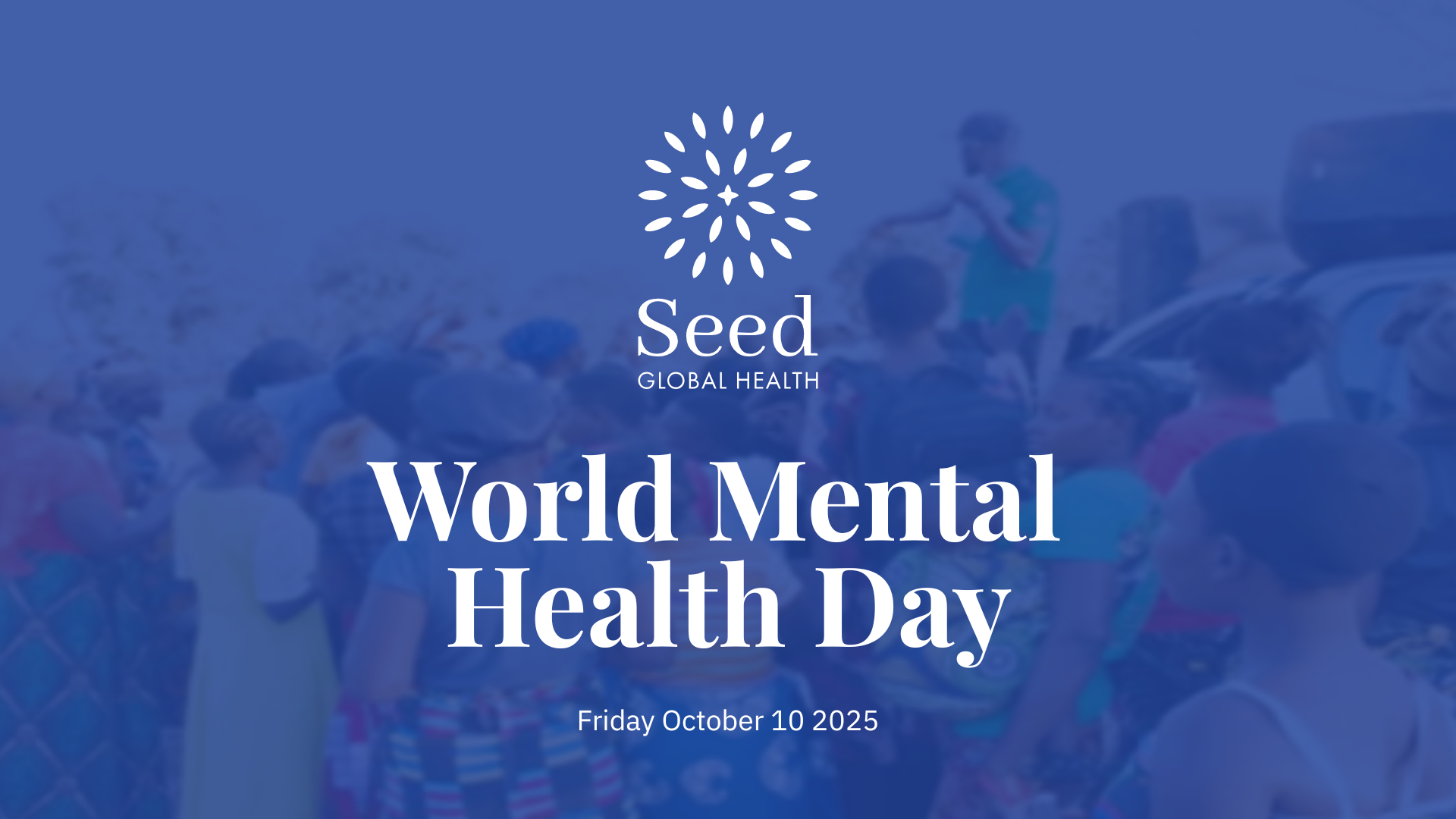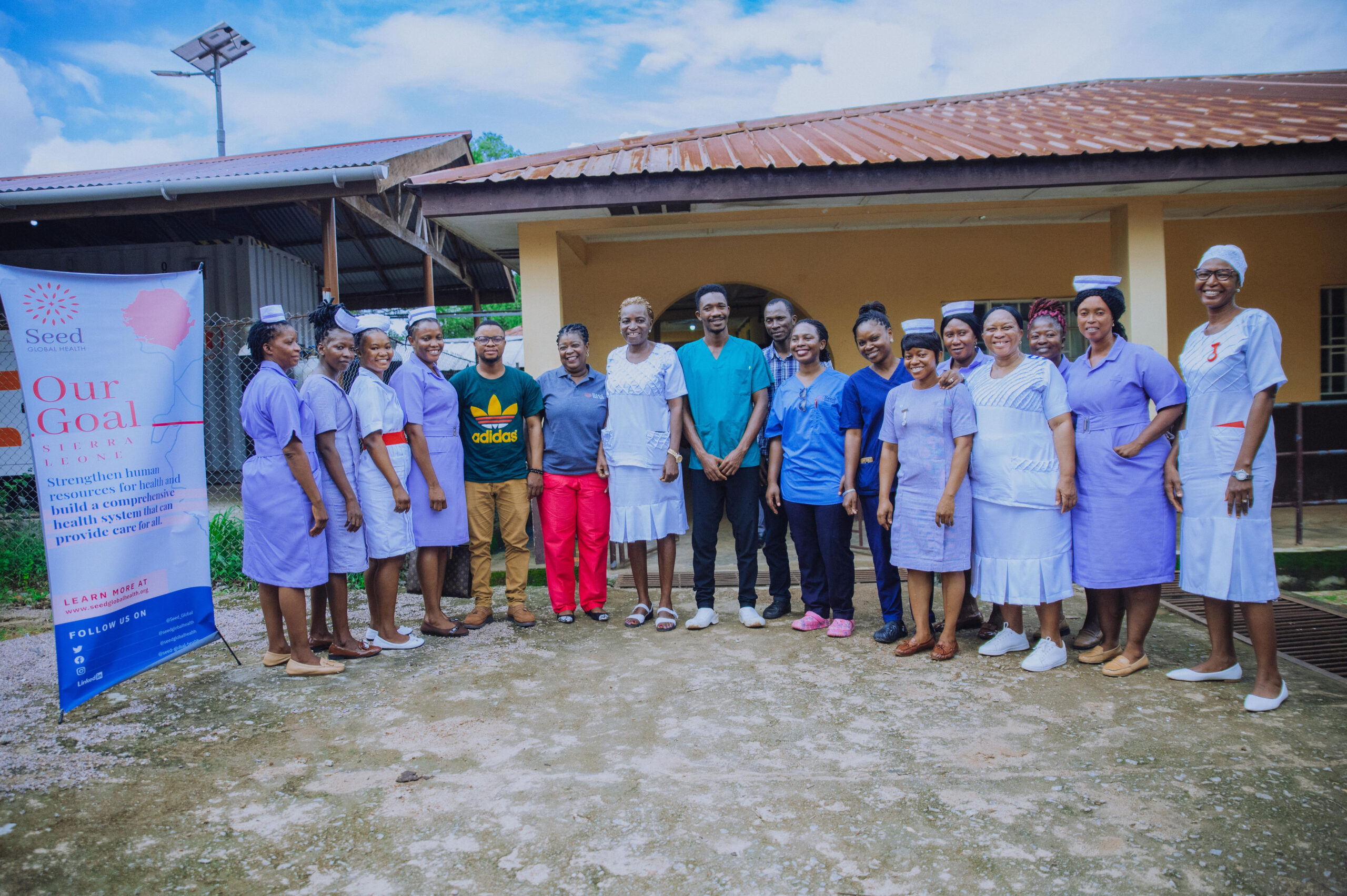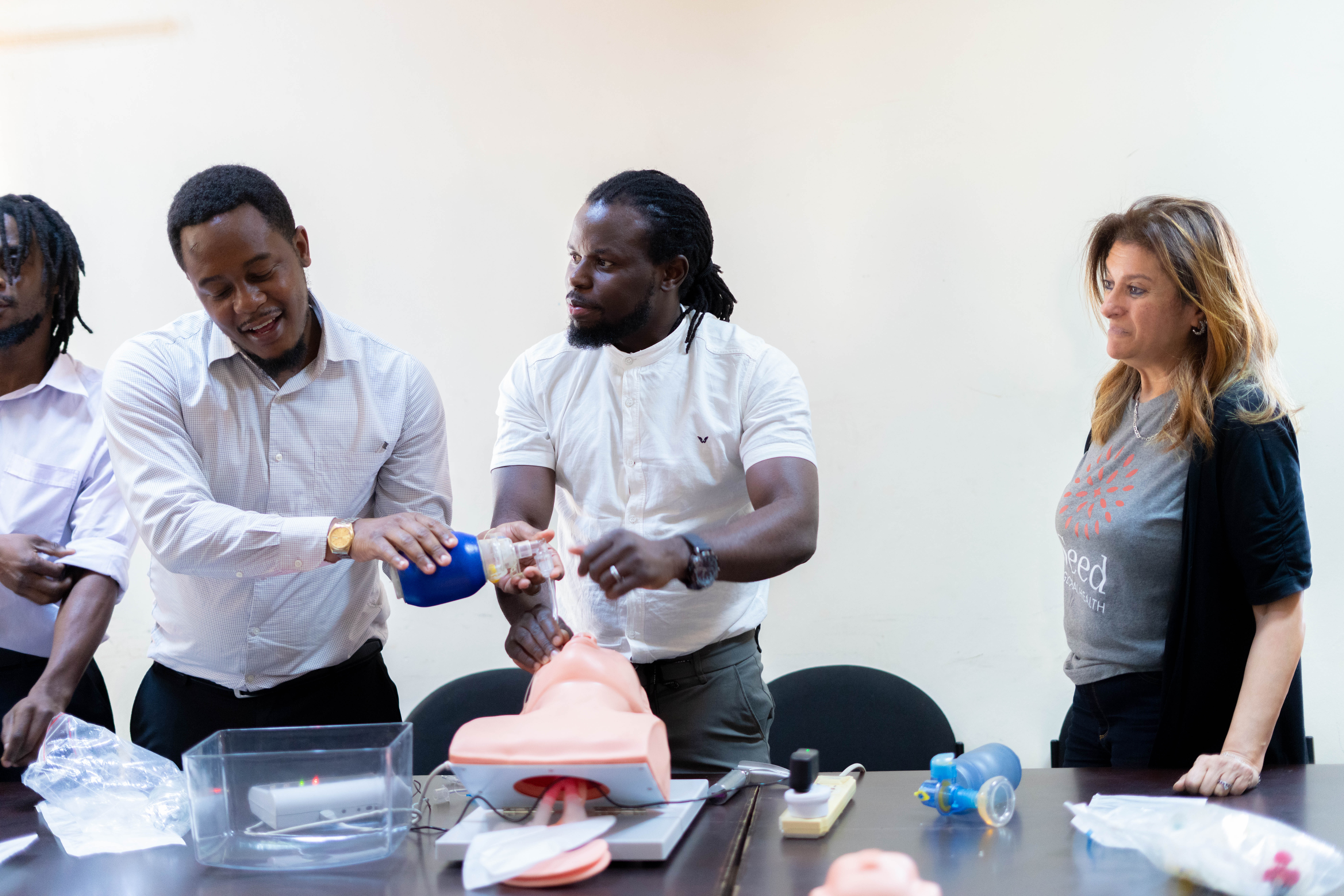
Health Worker Profile: Dr. Yewo Nyondo Safeguards the Children of Malawi
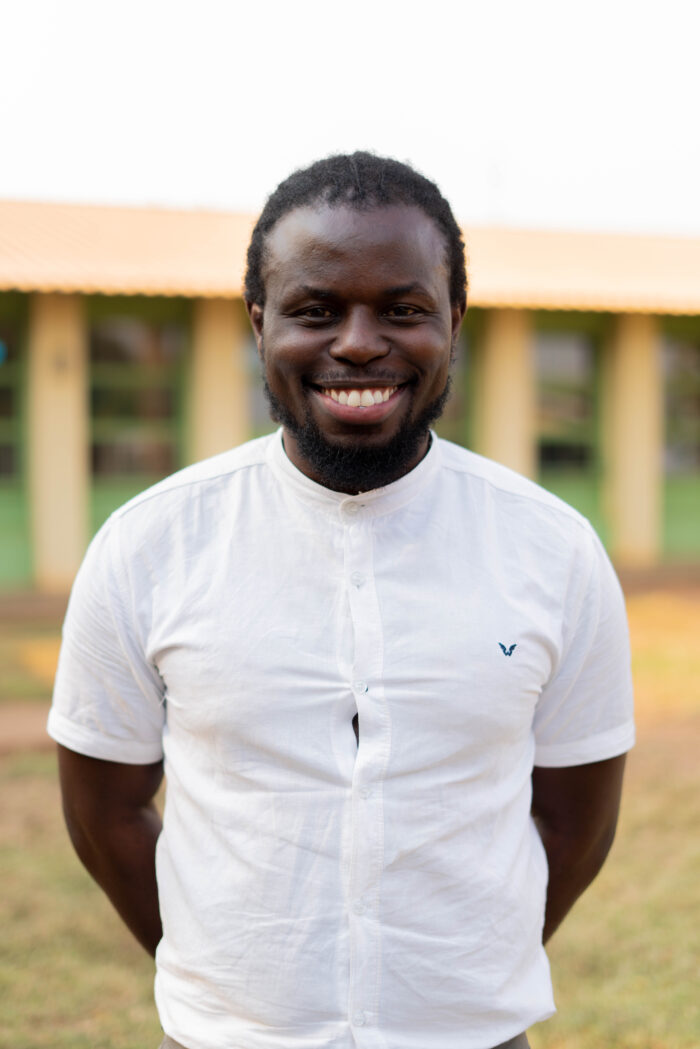
Dr. Yewo Nyondo’s journey to becoming a pediatrician was deeply personal. Born prematurely with numerous health challenges, Dr. Nyondo’s early experiences inspired him to pursue a career in medicine, particularly in pediatrics. Now a pediatric resident at Kamuzu Central Hospital (KCH) in Malawi, his desire is to ensure that other children can receive the same quality of care that helped him survive.
Dr. Nyondo began his medical journey by obtaining a diploma in clinical medicine, which took three years to complete. He then did his internship at KCH, where he developed a strong passion for pediatrics. His dedication led to an opportunity to work with children living with HIV. Recognizing his potential, he was awarded a scholarship to study medicine in Cuba, where he spent seven years. After completing his studies, he returned to Malawi with a promise to provide exceptional care to children.
Currently, Dr. Nyondo is pursuing a master’s degree at Kamuzu University of Health Sciences to become a fully qualified pediatrician. His motivation for returning to Malawi was clear: to serve his country and give back to the community that had given him so much. He believes in continuing the work that formed the foundation of his career—caring for the children of Malawi.
Reflecting on his training, Dr. Nyondo expresses deep appreciation for the role of Seed Global Health and its visiting faculty, also known as “educators.” “These educators, with their vast experience working in different countries, have provided my colleagues and me with invaluable knowledge. They have taught us how to manage diseases in various settings, which is crucial for the work we do. The educators have helped create a sense of belonging among us, ensuring we are well-prepared to become pediatricians. Seed educators are one of the greatest gifts to KCH,” said Dr. Nyondo.
Seed educators are experienced, highly-skilled doctors, nurses, and midwives from around the world, who embed with our academic and clinical partners, like KCH, for at least one year. Their work ranges from partnering with faculty at universities and hospitals to developing and strengthening curricula, training and mentoring emerging doctors, nurses, and midwives, and moving learners from theory to practice using a competency-based bedside teaching model, in which they work together with trainees not only in the classroom, but also in clinical settings, caring for patients.
For Dr. Nyondo, health workers play a crucial role in shaping a healthier tomorrow. “Health workers are the backbone of our healthcare system. Without their dedication and hard work, the progress we strive for improving health outcomes, especially for children, would be impossible.”
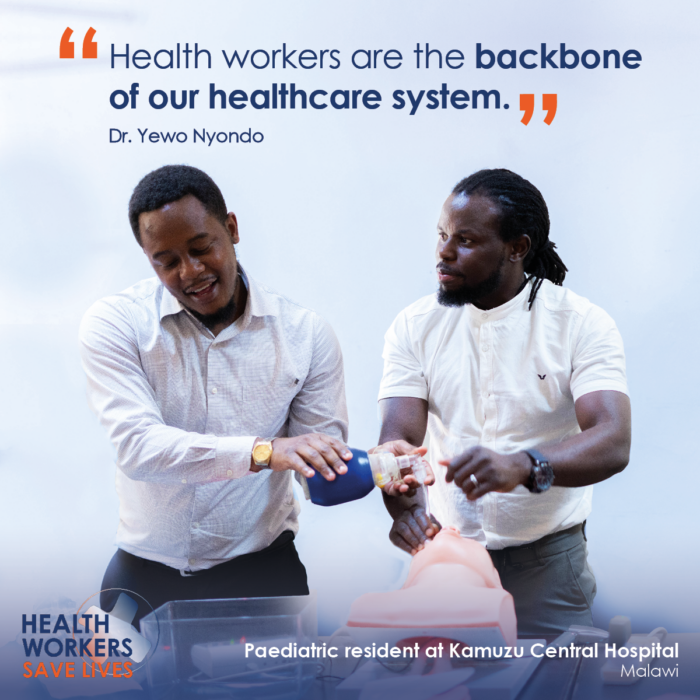
Seed Global Health’s partnerships with Kamuzu Central Hospital, Kamuzu University of Health Sciences (KUHES), and Queen Elizabeth Central Hospital are vital in supporting the training of health professionals like Dr. Nyondo. These collaborations focus on building healthcare capacity in Malawi by strengthening medical education and clinical training. Seed educators work closely with these institutions to ensure future healthcare workers are well-equipped to deliver high-quality care to patients, particularly children.
Looking ahead, Dr. Nyondo is hopeful that the training provided at KCH and Queen Elizabeth Central Hospital goes beyond just these hospitals. He understands the importance of taking care of children today because they are the future. “That future cannot be realized if we can’t take care of the children at this point,” he says.
Malawi needs more qualified pediatricians and by undertaking this education, Dr. Nyondo’s motivation and training has set him up to play a significant part in saving the lives of the young patients he sees on the wards and giving them a better future.
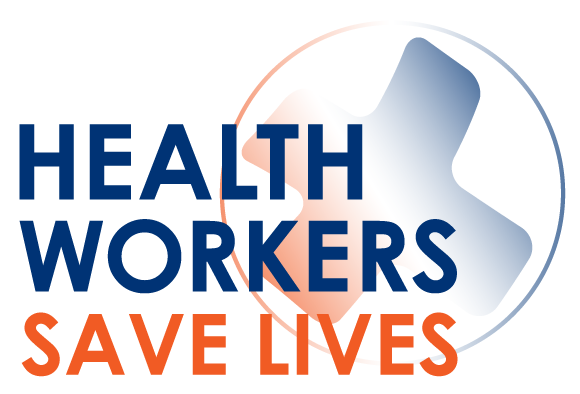
We spoke to Dr. Nyondo as part of our Health Workers Save Lives campaign. An effort, in collaboration with the Frontline Health Workers Coalition, to bring more attention to the vital role health workers play in delivering care and the need for more investment the health workforce.
